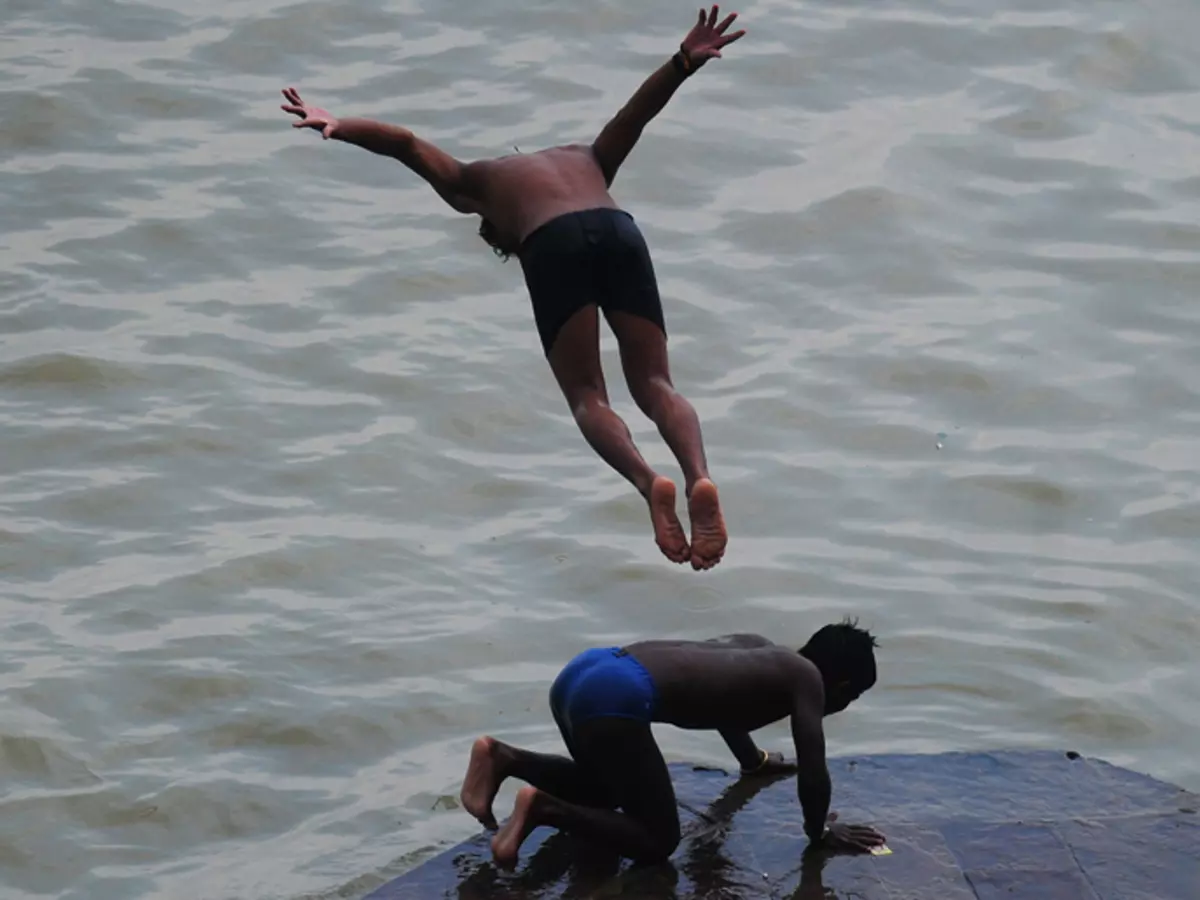Just Spending Money Won't Clean Ganga, Experts Say No Major Improvement Has Come In Water Quality
Just spending money on Sewage Treatment Plants STPs will not clean the Ganga river says experts. What is needed is a comprehensive plan to stop sewage from entering the river say experts. The Ganga considered by Hindus as the holiest of rivers flows from the Himalayas to the Bay of Bengal covering 2525 km across five states.

Just spending money on Sewage Treatment Plants (STPs) will not clean the Ganga river - what is needed is a comprehensive plan to stop sewage from entering the river, say experts.
Their views assume significance in the light of the National Green Tribunal (NGT) on Monday pulling up government agencies for "wasting public money" in the name of cleaning the river.

AFP
"Not a single drop of the river has been cleaned so far," a bench headed by its Chairperson Justice Swatanter Kumar said.
Reputed water conservationist Rajendra Singh can only agree and he says that "distributing money for setting up machines" (STPs) won't bring good results unless there was a national protocol to stop sewage water from flowing into our rivers.
Environmentalist C.R. Babu concurred, saying all the rivers and rivulets flowing in the Gangetic plan carry only sewage and no river can be cleaned minus simultaneous efforts to clean towns and cities of sewage.

AFP
Sushmita Sengupta of the Centre for Science and Environment (CSE), however, felt that while the central government had an elaborate plan to clean the Ganga, concrete action on the field was still awaited.
The Ganga, considered by Hindus as the holiest of rivers, flows from the Himalayas to the Bay of Bengal, covering 2,525 km across five states. Despite a Ganga Action Plan launched in 1985, the river remains highly polluted, particularly once it crosses Haridwar.

AFP
Rajendra Singh, known as the "Waterman of India", contended that the money spent on cleaning the Ganga was being "distributed" to contractors and companies with no experience in the field of river rejuvenation.
"They have given money for projects to install STPs. This money will go to those ... supplying iron, cement, concrete, pipes. But won't solve the problem," Singh told IANS.
"To comprehensively treat the river, there is need to ensure that dirty water does not find its way into Ganga, to separate all the 'nullahs' (drains) that merge with Ganga, to pass a law or formulate a national protocol to separate river from the sewer," he added.
Singh, who won the Stockholm Water Prize (known as the Nobel Prize for water) in 2015, said: "What we need is to establish a system to ensure that dirty water doesn't mix with clean water. As for the dirty water, it should be treated and reused in agriculture, gardening, industry."

AFP
Babu, Professor Emeritus at Delhi University and head of the Centre for Environmental Management of Degraded Ecosystems, said the problem does not lie only with the cities.
"Many small rivers and rivulets coming from villages add only sewage into the river during non-monsoon months," Babu told IANS, adding the obvious: the Ganga cannot be cleaned until discharge of sewage into the river is stopped.
"You can't spend thousands of crores of rupees to clean Ganga and at the same time allow sewage to enter the river. You continuously clean and you simultaneously pollute. This is not the way."
CSE's Sengupta, however, felt the government has tried to learn from earlier faults and now has an elaborate plan to clean the Ganga. But she added that the impact can be seen only when there was an improvement in the quality or flow of water.

BCCL
"Even Central Pollution Control Board data show there is no appreciable impact on the quality of river water," Sengupta tells.
Most work of cleaning coastal debris like flowers, plastic, dead bodies and upgrading STPs was done during the UPA regime, she said. "Some new projects have now come in. But they are small in terms of percentage."
Under the Ganga Gram project, the government plans to develop villages located along the main stream of the river which has historic, cultural and religious or tourist importance.
